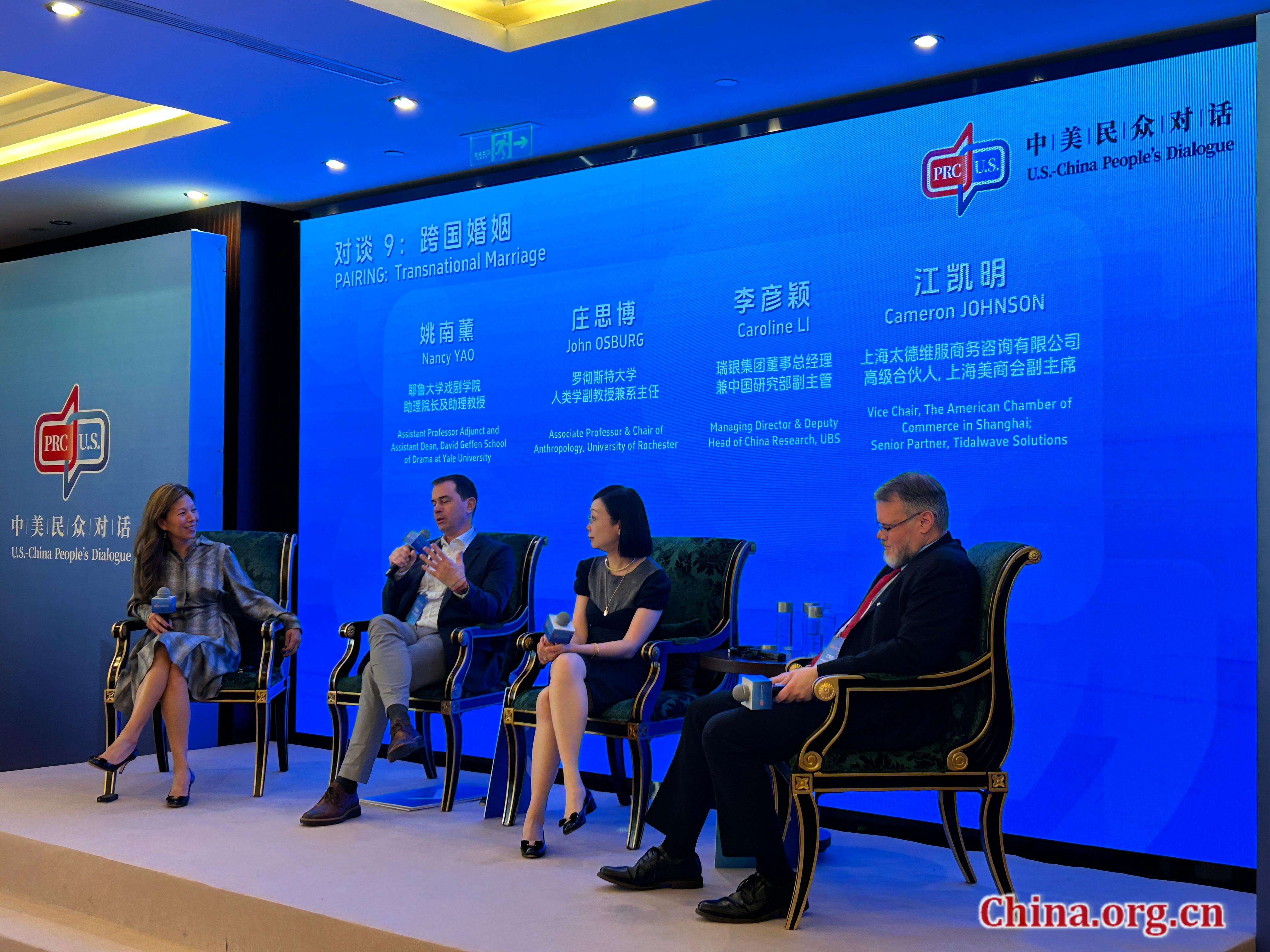
 0 Comment(s)
0 Comment(s) Print
Print E-mail China.org.cn, November 24, 2024
E-mail China.org.cn, November 24, 2024
A dialogue session on transnational marriages, as part of the "U.S.-China People's Dialogue: Charting a Path Forward" series, is held in Beijing, China, Nov. 22, 2024. [Photo by Liao Jiaxin/China.org.cn]
Three representatives from the United States and China gathered Friday in Beijing for a session of the "U.S.-China People's Dialogue: Charting a Path Forward" series to discuss the challenges and approaches related to transnational marriages.
The event, co-hosted by the Center for International Security and Strategy at Tsinghua University and the National Committee on United States-China Relations, aimed to promote greater understanding between the peoples of the two nations through cross-sector dialogue.
Cameron Johnson, vice chair of the American Chamber of Commerce in Shanghai, commented on the difficulties of maintaining long-term relationships and the decline in marriage rates, noting, "I think one of the challenges is the decreasing willingness to work through problems."
Li Yanying, managing director and deputy head of China research at UBS and Johnson's wife, shared her personal experiences, stating, "Relationships are hard. Relationships are work."
She shared how she brought her family together with Johnson's five years ago, creating a new household that started living together two years ago. Addressing the challenges of blended families, she recognized the skepticism and financial concerns she encountered about her decision, including high international school fees, but emphasized the importance of their togetherness: "For me, what's more important is the opportunity we could live together for all of us."
Johnson compared his transnational family dynamics to the broader bilateral relationship, noting examples like his sons arguing in their native languages and his and his wife's differing preferences for coffee and tea. However, despite these differences, Johnson said they understand each other and their diversity enriches their home life.
On the topic of parenting, Johnson revealed that their household employs a hybrid parenting style, which he initially thought would lead to significant conflict. Contrary to his expectations, disputes rarely arose over core values; instead, they occurred over minor issues like differing tolerances for "dust" and "clutter."
John Osburg, associate professor and chair of anthropology at the University of Rochester, another participant in the dialogue, shared insights from his own transnational marriage. He described how he integrated into his wife's social network, often fielding inquiries related to America on topics ranging from the best architecture schools to cultural practices regarding family independence.
He humorously noted his role as a cultural ambassador, adding, "It does place a kind of burden on you, knowing that I might be the only American that the whole family is directly interacting with."
Participants unanimously agreed that more transnational marriages improve bilateral relations and offered suggestions for strengthening these connections.
Johnson reflected on the broader implications of personal relationships in international contexts, saying, "If we don't see somebody as just an observer, anything is possible."
Li Yanying pointed out that, in bilateral relations, like in a marriage, both parties should avoid being too self-centered and approach each other's development with openness. She emphasized, "The potential shift of power is a good thing for the human race. We can do something together as partners, rather than consider each other as rivals," highlighting the importance of unity over exaggerating differences.